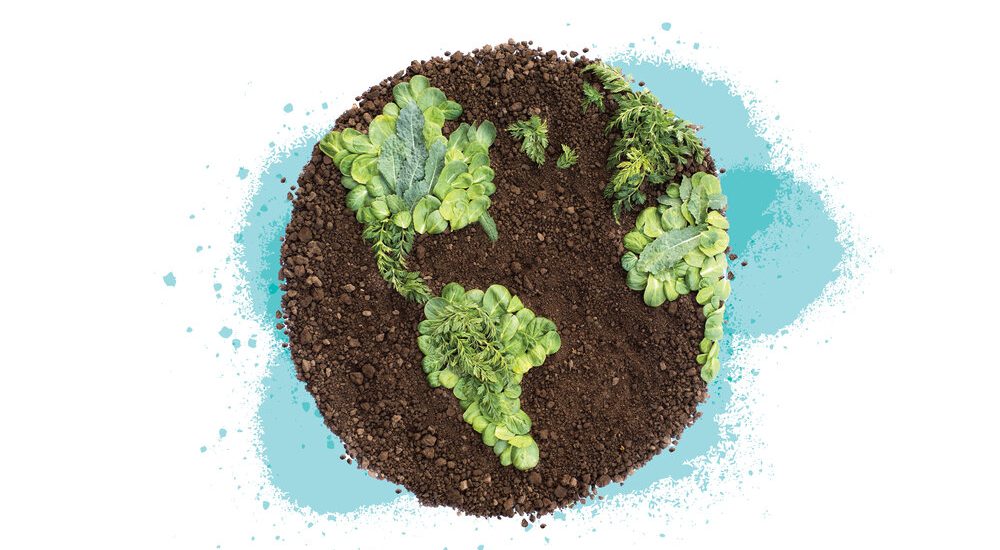Food waste and climate: a recipeBY PIETRO PAGANINI
- 2 May 2022
- Posted by: Competere
- Category: Senza categoria

Article published on Formiche.net
It is not just an ethics issue. Reducing food waste would mean alleviating our impact on the ecosystem and to mitigate climate change. It would also help us to better manage our daily energy intake needs against famines, pandemics, and all kinds of crisis
In order to feed the planet, we are altering the equilibrium of the ecosystem. And yet, 700 million people do not have enough to eat. But we also waste 2.1 billion tons of food. We can and we must produce more but, most importantly, we must waste less. How? Let us analyze the problem and come up with some solutions.
700 million people do not have enough to eat. At least 3 billion people do not have access to a healthy and balanced diet. Each year we waste 1.6 billion tons of food. That number will go up to 2.1 by 2030. Clearly, something in the current food system is not working. Reducing food waste cannot solve relieve the world from hunger but it can alleviate the problem.
It is not just a matter of ethics. Reducing food waste would mean alleviating our impact on the ecosystem and to mitigate climate change. It would also help us to better manage our daily energy intake needs against famines, pandemics, and all kinds of crisis.
- Guaranteeing a decent diet to the 7.9 billion people living on the planet means producing at least 15 trillion calories each day.
- It is a gigantic amount of energy that we derive from several nutrients, from fats to proteins and sugars.
- In order to produce sufficient quantities, we are forced to transform the ecosystem, altering its equilibrium, and precipitating climate change.
The speed of climate change, the bottlenecks along supply chains – partially due to lockdowns around the world -, and the consequences of the conflict in Ukraine and the relative sanctions against Russia are three intertwined headaches that could weaken food production and affordability. Entire regions of the world could run short on nutrients that are at the base of a healthy and balanced diet. Poverty would grow exponentially, worsening pre-existing social conflicts and further damaging the ecosystem.
We must work toward an increase in commodity production, while having a lesser impact on the planet. It’s a challenge that will take time, investments, technological innovation, and smart policy. And that won’t be enough. We need faster solutions, ramping up the efforts to reduce food waste. Italy is the country with the most progressive legislation on food waste prevention. It can rely on a number of solidarity initiatives that are unmatched. We can and we must be an example to other countries, especially in Europe.
But we can do even better. Education, beginning in schools and families, is the starting point to develop awareness, knowledge, and responsibility among citizens. National, regional, and city governments need to invest, taking advantage of the existing legal framework. Private entities, large-scale food retail and food production, have already taken important steps in this direction (see Esselunga). And they can do so much more, engaging the entire production chain to reorganize its processes, and encouraging consumers to make more responsible choices. The Internet of Things, connecting objects with intelligent algorithms, is already providing us with tools to monitor what we buy, consume, and throw away. It will also be a useful instrument to manage the calory intake, guaranteeing a more balanced diet.
Technological progress will allow a reduction in food waste along productive processes both in developed country and in underdeveloped ones, where small producers do not yet have the knowledge and tools for an efficient management of production, stocking, and distribution. New digital apps and entrepreneurial projects will empower supply chains to limit waste, recycle and donate, making it so that no food goes wasted.
Each of us can
- Donate leftovers while following a more balanced diet;
- Learn to use technology to better manage shopping and consumption;
- Invest in entrepreneurial activities and initiatives against food waste, and educate friends and family around us as well as people in our communities.
These are small steps we can take to reduce waste and, with it, our footprint on the ecosystem.
